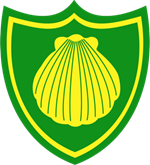Languages
Language is key to communication and, at St. James' Primary Academy, we want to develop Global Citizens who are able to communicate and enjoy language. We seek to use British Sign Language in our singing and our languages curriculum enables all children, including Key Stage 1, to learn a modern foreign language.
Years 1 to 6 study and learn both spoken and written French.
We aim to equip all pupils with a broad and balanced curriculum that deepens knowledge but also provides the cultural experiences they need to flourish throughout primary phase and beyond. The curriculum drivers we support with foreign language learning are:
Oracy
We will support pupils in becoming increasingly articulate young individuals who are able to express their own ideas confidently in both the first and second language. Language Angels promotes spoken activities and provides opportunities in all lesson to encourage communication which we believe needs to be actively taught and practised. The oracy developed in the foreign language will increase confidence, improve academic outcomes and encourage both independent and group work.
Diversity
Wherever possible, we will celebrate religion, ethnicity and ability. Great efforts have been made to represent a range of cultural backgrounds. We endeavour to ensure all pupils feel valued, respected and included in their foreign language lessons. We value diversity and celebrate difference.
Creativity
Pupils have opportunities to practise creativity. Music and art are only part of how we encourage pupils to be creative in foreign language lessons. Our creative approach will encourage pupils to think creatively to solve problems and will encourage them to enjoy finding different pathways to the same end goal.
Independence
Wherever possible, we will encourage all pupils from an early age to be confident, independent learners. To become more organised, deeper thinkers, and use their initiative to solve problems and move forward in their language learning. Knowing what to do when they are unable to initially complete a task/answer a question will help build their confidence. Learning to persevere and understanding that it can at times take longer for some to find answers, but knowing we will get to the answer in the end are important life skills.
The five main teaching types are:
• Starting Off and Moving On
The focus is on interactive, immersive teaching with a focus on the spoken and auditory skills. Lessons feel less structured and are pupil centred with implicit learning at the core. Lots of physical movement and music to ensure pupils are fully engaged as they may still be learning their first language.
• Moving Up/Early Language
The lessons work mostly on vocabulary, on single nouns, building up memory skills and formulating very short simple sentences by the end of a unit, from memory.
• Intermediate
More grammar is incorporated into the lessons and starts to be more explicit in the terminology and explanations. Longer reading and listening exercises and more is expected in their oral responses and written work. Pupils will know more and learn more.
• Progressive
These units are the most challenging. The lessons contain more content and the pace is faster as there is more language presented to the children. This teaching type encourages children to produce written paragraphs and speak more fluently and accurately from memory.
